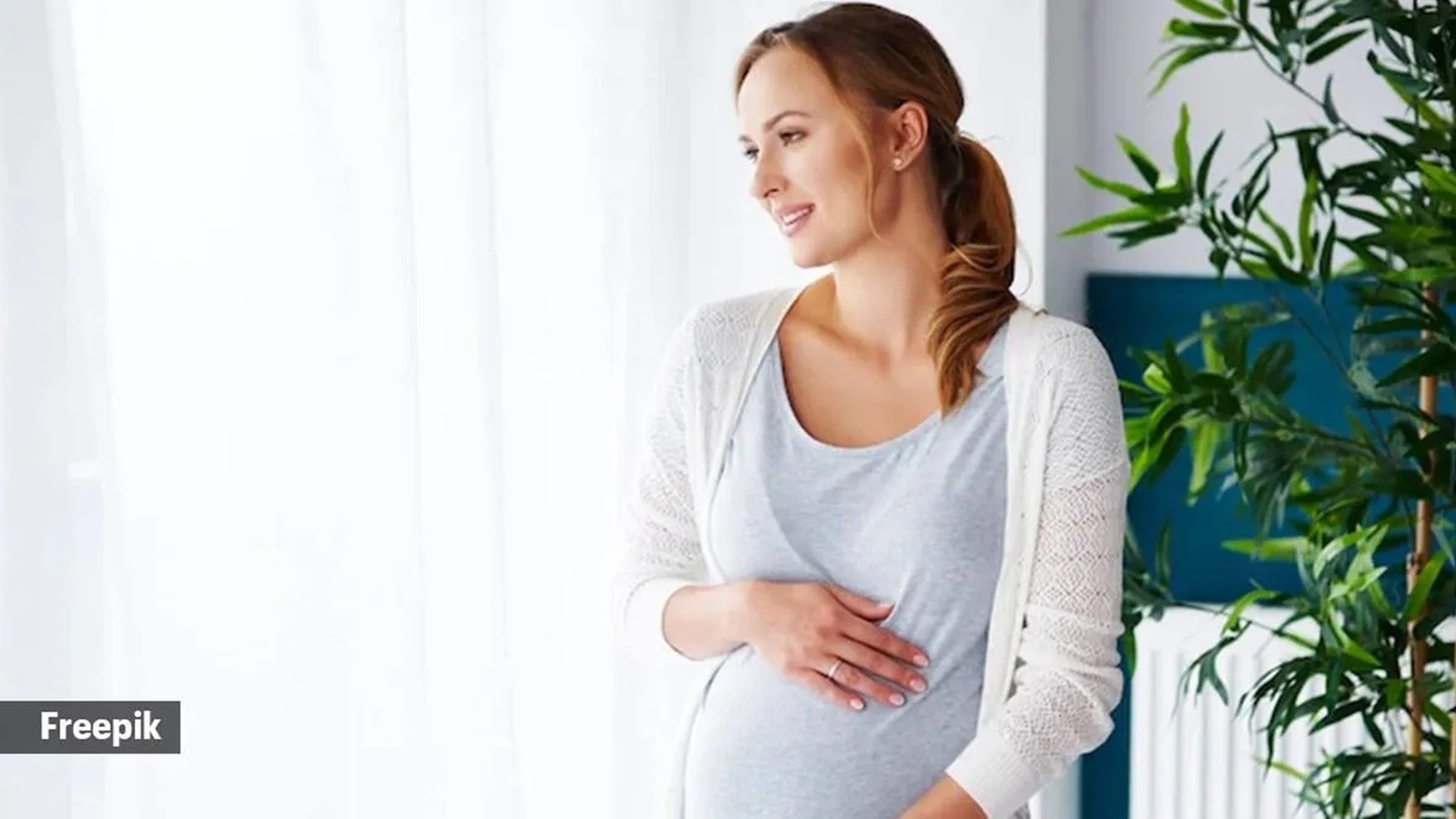📣 For more lifestyle news, click here to join our WhatsApp Channel and also follow us on Instagram
Radhika Apte opens up about first trimester struggles, says was in ‘denial’ after learning about pregnancy: ‘I was having a meltdown’
"Pregnancy is very hard, and bodies constantly go through very big changes," Radhika Apte said, adding that she never planned to have children.
 Radhika Apte on her first trimester (Source: Radhika Apte/Instagram)
Radhika Apte on her first trimester (Source: Radhika Apte/Instagram)Radhika Apte, due to deliver her first child in December 2024 with husband Benedict Taylor, recently opened up about her first trimester. Admitting that she was in “denial” for two weeks after learning about her pregnancy, Apte mentioned that she had “terrible bloating, severe constipation, and nausea” while she was shooting for those three months in 40-degree heat. “I was having a meltdown all the time. And people were telling me you need to be happy because you’re having a child. I wanted to punch them. I’m telling you that I’m suffering, and you’re telling me to be happy,” said Apte, adding that she never planned to have children.
In an interview with ETimes, Apte, 39, shared that the couple “never looked into what pregnancy means or what happens when you’re pregnant.” “What are the changes that the body goes through? There’s so much sacredness attached to pregnancy that nobody tells you the truth because pregnancy is very hard. Pregnancy is not fun. Some people have a better pregnancy; for some, it’s easier than other people. But it’s a very subjective case. Pregnancy is very hard, and bodies constantly go through very big changes,” the Merry Christmas actor added.
Notably, Apte surprised her fans by appearing at the BFI London Film Festival last month, flaunting her baby bump.
Taking a cue from the actor’s admission, let’s understand the changes that occur in the first trimester and what can help to cope.
Dr Pratima Thamke, consultant obstetrician and gynaecologist, Motherhood Hospital, Kharghar, seconded Apte and said that the first trimester of pregnancy could feel like navigating through a wide range of emotions and physical changes, often leaving expectant mothers with anxiety and stress. “For many, the thought of bringing new life into the world is tempered by overwhelming fatigue and nausea. Hormonal shifts can create heightened sensitivity, stress, fatigue, and weight gain in a large number of women,” said Dr Thamke.
What can help?
According to Dr Thamke, emotional turmoil can cause loneliness, frustration, and irritation. “Initiating conversations about fears, hopes, and expectations can help form deeper bonds with partners while opening channels for essential support networks from families and friends during this time,” said Dr Thamke.
 Here’s what to consider (Source: Freepik)
Here’s what to consider (Source: Freepik)
Moreover, mindfulness practices like journaling or gentle yoga can help “ground fluctuating emotions while promoting a sense of control during this journey.”
According to Dr Thamke, the challenges differ from woman to woman as every woman’s journey is different, and the issues they experience will also not be similar. “It is better for pregnant women to stay calm and composed during the first three months by opting for relaxation techniques like meditation and regular check-ups with the doctor. Don’t get bogged down; resilience is key during this crucial period. Pay attention to your health, eat a balanced diet, and follow the advice given by the doctor,” said Dr Thamke.
DISCLAIMER: This article is based on information from the public domain and/or the experts we spoke to. Always consult your health practitioner before starting any routine.
📣 For more lifestyle news, click here to join our WhatsApp Channel and also follow us on Instagram





- 01
- 02
- 03
- 04
- 05






















